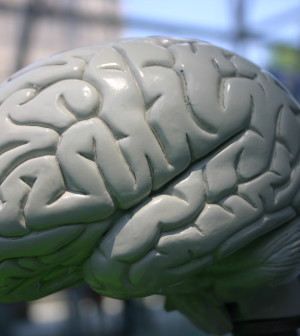- 8 Ways to Increase Dopamine Naturally
- 7 Best Breads for Maintaining Stable Blood Sugar
- Gelatin vs. Collagen: Which is Best for Skin, Nails, and Joints?
- The Long-Term Effects of Daily Turmeric Supplements on Liver Health
- Could Your Grocery Store Meat Be Causing Recurring UTIs?
- Are You Making This Expensive Thermostat Error This Winter?
- Recognizing the Signs of Hypothyroidism
- 10 Strategies to Overcome Insomnia
- Could Artificial Sweeteners Be Aging the Brain Faster?
- Techniques for Soothing Your Nervous System
Snubbed? Brain Chemicals Might Comfort You


TUESDAY, Oct. 15Your brain releases natural painkillers when you’re rejected by other people, according to a new study.
That this painkiller system acts to ease social hurt as well as physical pain may improve understanding of depression and social anxiety, the University of Michigan Medical School researchers said.
The researchers also found that people with the highest levels of resilience — the ability to adjust to change — had the highest levels of this natural painkiller activation.
The research team focused on the mu-opioid receptor system in the brain. Their previous research on this system showed that when a person feels physical pain, the system releases opioids in order to dampen pain signals.
In this study, the researchers used brain scans to monitor the system’s response in 18 volunteers who experienced social rejection in experiments that mimicked online dating. The findings were published recently in the journal Molecular Psychiatry.
“This is the first study to peer into the human brain to show that the opioid system is activated during social rejection,” study lead author David Hsu, a research assistant professor of psychiatry, said in a university news release. “In general, opioids have been known to be released during social distress and isolation in animals, but where this occurs in the human brain has not been shown until now.”
He said participants’ personalities appeared to affect the opioid system’s response to rejection. Those with a high level of resilience tended to have greater levels of opioid release, especially in the amygdala, a region of the brain involved in processing emotions.
“This suggests that opioid release in this structure during social rejection may be protective or adaptive,” Hsu said.
The researchers are now investigating if people with depression or social anxiety have an abnormal opioid response to social rejection or acceptance.
“It is possible that those with depression or social anxiety are less capable of releasing opioids during times of social distress, and therefore do not recover as quickly or fully from a negative social experience,” Hsu said. “Similarly, these individuals may also have less opioid release during positive social interactions, and therefore may not gain as much from social support.”
More information
The U.S. National Institute of Mental Health has more about anxiety disorders.
Source: HealthDay
Copyright © 2026 HealthDay. All rights reserved.










